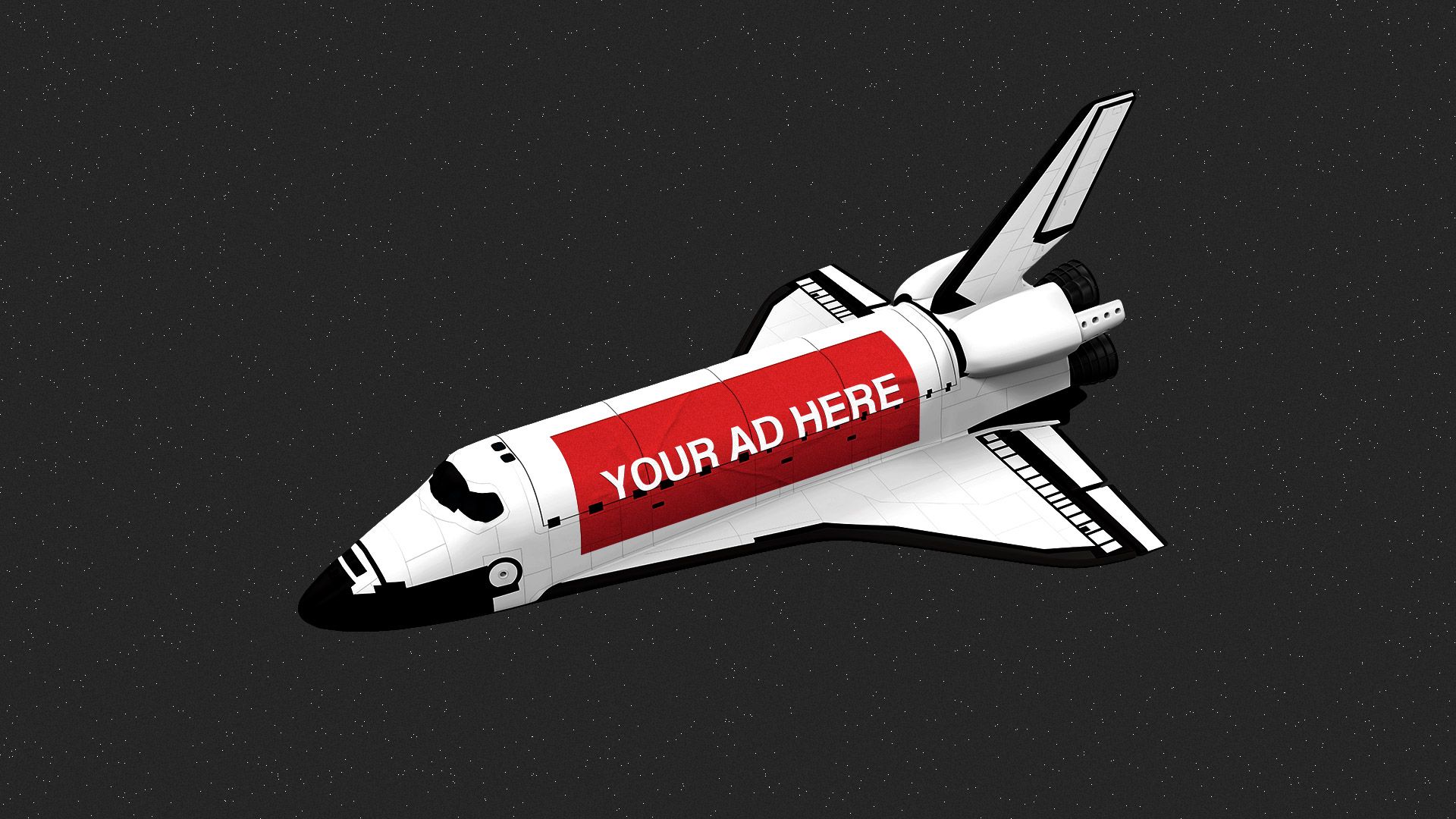Brands in orbit
Add Axios as your preferred source to
see more of our stories on Google.

Illustration: Aïda Amer/Axios
Fashion, food and media brands are using the buzz around the space industry to market their products, shaping the way people on Earth understand and interact with the extraterrestrial sphere for years to come.
What's happening: Last week, Virgin Galactic announced a partnership with Under Armour to produce a line of spacewear to be worn on the company's suborbital flights to the edge of space.
- It's the latest in a series of brand partnerships Virgin Galactic has penned in recent years, defining itself as a luxury space brand in the process.
- Budweiser wants to become the first beer brewed on Mars and has sent beer-brewing experiments to the International Space Station.
- Israel's Aleph Farms just announced that it grew meat on the Russian side of the station.
- Astrobotic — a company aiming to land a robotic spacecraft on the Moon — has a deal with DHL to allow the mail company to manage logistics of lunar deliveries for the commercial spaceflight company and its customers.
The backdrop: Historically, NASA has not taken part in marketing activities for commercial products.
- As the only U.S. game in space for years, those prohibitions naturally limited how much advertising made it to orbit.
- But today, companies like SpaceX, Blue Origin, Rocket Lab and others don't have those restrictions.
The catch: The idea that the night sky and space in general could be polluted by advertisements and marketing campaigns doesn't sit well with some.
- Rocket Lab's Humanity Star — a satellite designed to be visible to the naked eye as a piece of art — received major criticism from astronomers for its frivolous nature.
- Pepsi also received negative attention when it was reported that its Russian subsidiary was looking into the idea of buying a billboard in space that would have been visible in the night sky. (A U.S. law prohibits the launch of any ad that could be seen from space with the naked eye.)
- Brands should make sure their space marketing and advertising feels authentic, Brian Talbot, the founder of Adaptive Consulting, told Axios.
Yes, but: Some experts think advertising and branding in space could give the industry and space science a boost in prominence and power.
- "We lose a great deal of the population when we treat science or space as some kind of exquisite activity that can't be touched by popular culture or marketing," Mike Gold, a vice president at Maxar and member of the NASA Advisory Council, told Axios.
What's next: NASA's plans to turn over more operations on the space station to private entities will open up more opportunities for brands to conduct marketing activities.
